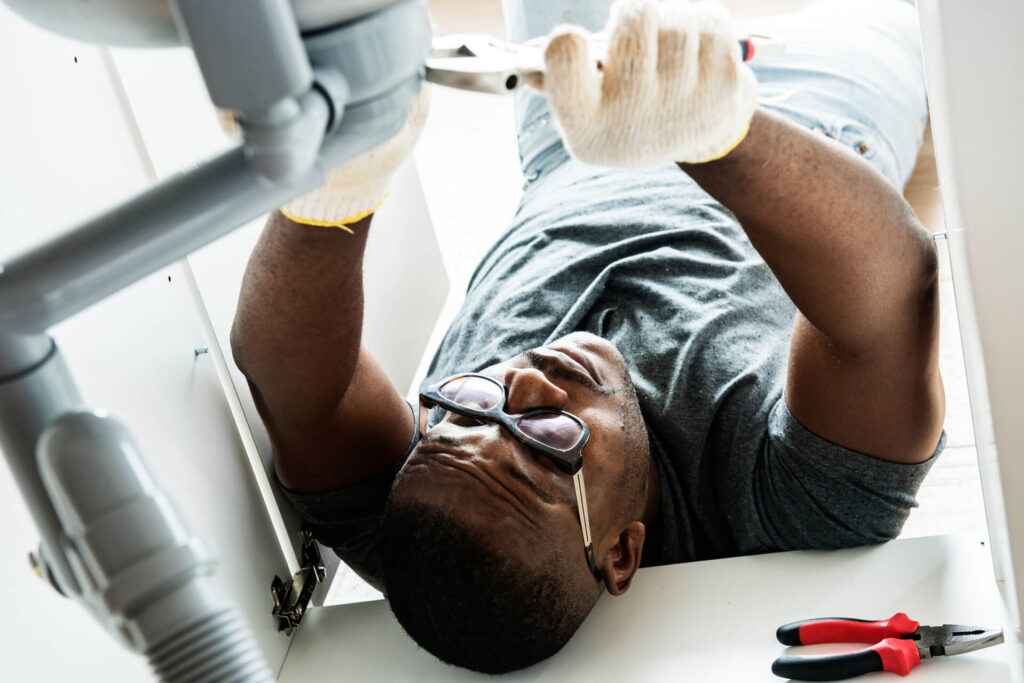
Are you considering plumbing services?
The cost of plumbing work can vary based on several factors such as the scope of the project, the type of plumbing material, and your location. Generally, plumbing costs can range from $1,200 to $10,000 or more. Understanding the key factors that influence plumbing costs can help you get a more accurate estimate for your specific project.
Find a local pro for your plumbing project.
Key Factors Impacting Plumbing Costs
Scope of the Project: The scope of a plumbing project encompasses a wide range of factors that can influence costs. Firstly, the complexity of the installation plays a crucial role in determining expenses. Projects involving intricate plumbing systems, such as multi-story buildings or commercial properties, typically require more labor and materials, leading to higher costs.
Additionally, the number and type of fixtures involved in the project contribute to overall expenses. Installing multiple fixtures, such as sinks, toilets, showers, and bathtubs, will incur higher costs compared to projects with fewer fixtures. Furthermore, the inclusion of additional features like water heaters, water filtration systems, or specialty fixtures adds complexity and cost to the project.
These features often require specialized installation techniques and may involve additional materials and labor. It’s essential to thoroughly assess the scope of the project and consider all the factors involved to ensure accurate cost estimates and effective budgeting.
Type of Plumbing Material: The choice of plumbing material is a critical factor that significantly impacts project costs. Different materials, such as PVC, copper, or PEX, come with varying price points and installation requirements. PVC (polyvinyl chloride) is a popular choice for its affordability and ease of installation, making it a cost-effective option for plumbing projects on a tight budget. Copper, while more expensive than PVC, offers durability and longevity, making it a preferred choice for high-end projects or applications requiring corrosion resistance. PEX (cross-linked polyethylene) is another versatile option known for its flexibility and resistance to freezing, making it suitable for cold climates.
Additionally, factors like pipe diameter and quality of fixtures also influence costs. Larger diameter pipes and high-quality fixtures typically come with higher price tags. It’s essential to carefully consider the specific requirements of your project, including factors like budget, durability, and performance, when selecting plumbing materials to ensure the best value for your investment.
Location: Plumbing costs can vary based on your location. Factors such as local building codes, permit fees, and labor rates will influence the overall cost of the project. Urban areas typically have higher labor rates and permit fees compared to rural areas.
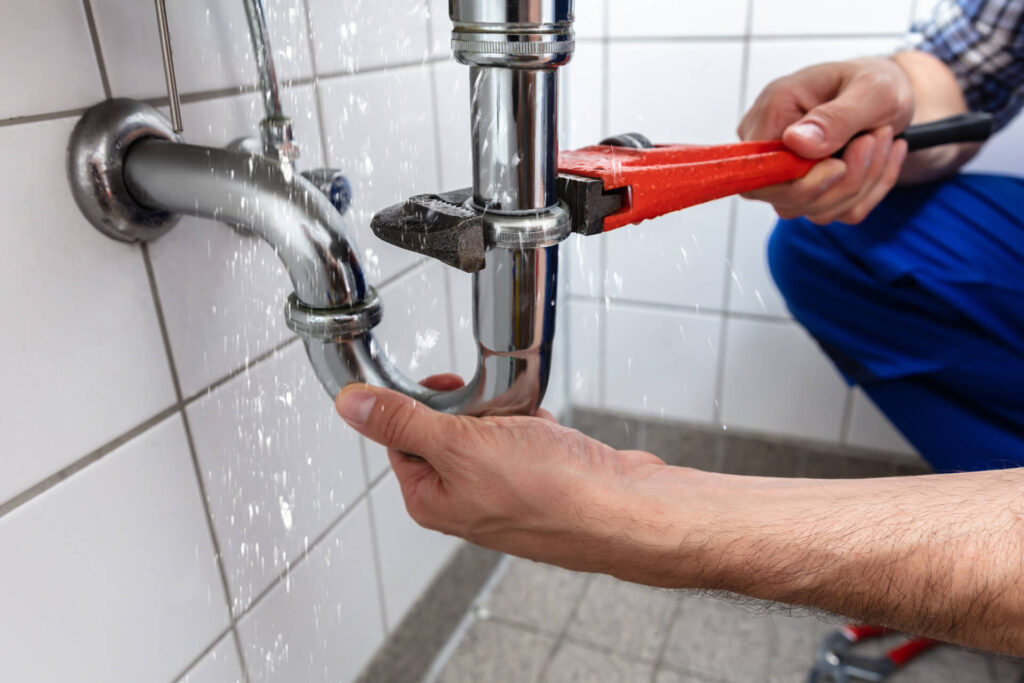
Emergency vs. Planned Services
Emergency plumbing services may incur additional costs due to the urgency of the situation and the need for immediate attention. Planned plumbing projects, on the other hand, allow for more flexibility in scheduling and budgeting.
Average Cost of Common Plumbing Services
Here’s an overview of the average costs for common plumbing services:
- Pipe Repair or Replacement: $200 to $1,500 per repair, depending on the extent of damage and type of pipe.
- Water Heater Installation: $800 to $3,500, including the cost of the unit and installation labor.
- Toilet Installation: $150 to $800 per toilet, depending on the type and complexity of installation.
- Faucet Installation: $150 to $300 per faucet, including the cost of the fixture and installation.
- Drain Cleaning: $100 to $400 per service, depending on the severity of the clog and accessibility of the drain.
- Plumbing Inspection: $100 to $500, depending on the scope of the inspection and any additional tests required.
Factors Influencing Plumbing Costs
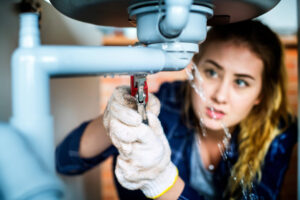
Labor rates play a pivotal role in determining plumbing costs and can vary significantly depending on the region. Urban areas often have higher labor rates due to the higher cost of living and increased demand for skilled labor. Conversely, rural areas may have lower labor rates but could also face challenges in finding experienced plumbers. Additionally, factors such as the time of year and prevailing economic conditions can also impact labor rates. It’s essential to factor in labor rates when budgeting for plumbing projects to ensure accurate cost estimates.
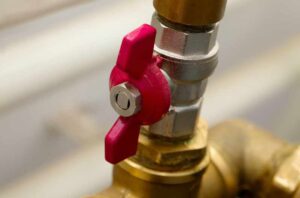
The cost of plumbing materials encompasses a wide range of components, including pipes, fixtures, fittings, valves, and connectors. The type and quality of materials selected for the project can significantly affect the total cost. For example, opting for premium-grade materials may incur higher upfront costs but could result in long-term savings by reducing the need for frequent repairs or replacements. Conversely, choosing lower-quality materials to cut costs initially may lead to higher maintenance expenses down the line. It’s essential to strike a balance between upfront expenses and long-term durability when selecting plumbing materials.
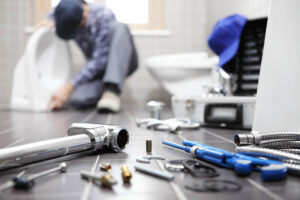
The complexity of a plumbing project is another key factor influencing costs. Projects that involve extensive renovations, such as whole-house repiping or sewer line replacement, typically require more labor and materials, resulting in higher overall costs. Additionally, projects that involve intricate plumbing systems, such as multi-story buildings or commercial properties, may also incur higher expenses due to the complexity of installation and maintenance. It’s crucial to assess the scope and complexity of the project accurately to anticipate potential challenges and budget accordingly.

Accessibility refers to the ease of reaching plumbing fixtures, pipes, and other components within a building or structure. Factors such as tight spaces, obstructions, or hidden pipes behind walls can impact labor costs significantly. Plumbers may need to invest additional time and effort in accessing hard-to-reach areas, which can increase overall project expenses. In some cases, accessibility challenges may require specialized equipment or techniques, further contributing to costs. It’s essential to communicate any accessibility issues upfront with your plumber to ensure accurate cost estimates and timely completion of the project.
| Material Type | Average Cost per sq ft |
|---|---|
| PVC | $1.50 to $3.00 per square foot |
| Copper | $5.00 to $10.00 per square foot |
| PEX | $1.00 to $2.50 per square foot |
| Cast Iron | $8.00 to $15.00 per square foot |
| Galvanized Steel | $3.00 to $6.00 per square foot |
| Stainless Steel | $6.00 to $12.00 per square foot |
| Brass | $7.00 to $14.00 per square foot |
| ABS | $2.00 to $4.00 per square foot |
| Polyethylene | $1.50 to $3.50 per square foot |
Energy-Efficient Plumbing Fixtures
Upgrading to energy-efficient plumbing fixtures not only helps conserve water but also reduces utility bills. Consider installing low-flow toilets, aerated faucets, and water-efficient showerheads to minimize water consumption without sacrificing performance. Many municipalities also offer rebates or incentives for installing eco-friendly plumbing fixtures, making it a cost-effective investment in the long run.
Water Quality Considerations:
The quality of your water can impact the performance and lifespan of your plumbing system. Hard water, for example, can lead to mineral buildup in pipes and fixtures, resulting in reduced water flow and efficiency. Investing in water softening systems or filtration systems can improve water quality and protect your plumbing infrastructure from damage caused by contaminants.
Plumbing Code Compliance:
When undertaking plumbing projects, it’s crucial to ensure compliance with local building codes and regulations. Failure to adhere to plumbing codes can result in costly fines and delays in project completion. Hire licensed plumbers who are knowledgeable about local plumbing codes to ensure that your plumbing projects meet regulatory requirements.
Professional Plumbing Consultations:
If you’re unsure about the best plumbing solutions for your home or facing complex plumbing issues, consider scheduling a consultation with a professional plumber. A qualified plumber can assess your plumbing system, provide expert advice on maintenance and upgrades, and offer tailored solutions to meet your specific needs and budget.
Warranty and Guarantee Information:
When hiring plumbing contractors or purchasing plumbing fixtures, inquire about warranties and guarantees offered by the manufacturer or service provider. Understanding the warranty coverage and terms can provide peace of mind and assurance that you’re protected against defects or faulty workmanship.

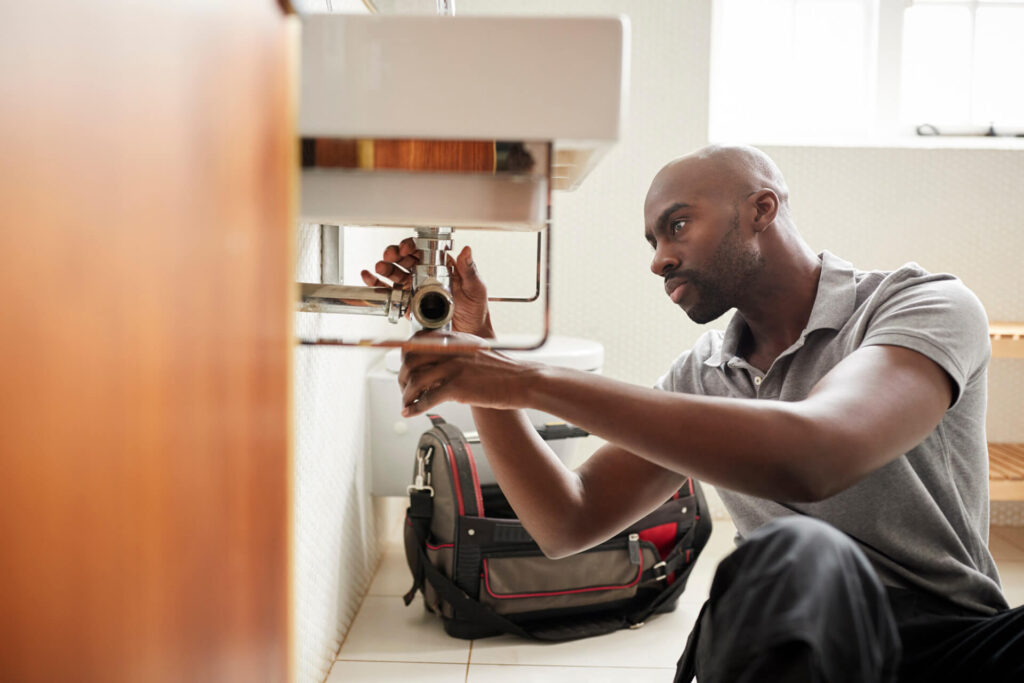
No-Hassle Plumbing Estimates
- Free Quotes on All Services
- Top-Rated Remodeling Pros
- Licensed & Certified Installers
- Industry-Leading Warranties
- 100% Satisfaction Guaranteed
- Local Contractors in Your Area